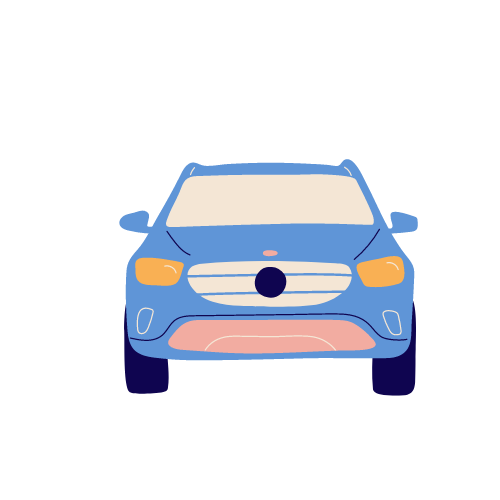
What is my neighbor paying for a non-owners policy?
Non-Owners Sample Quote
See a sample rate for a Male Driver / Single 33 years old, SR22 Required
Colorado Non-Owners: SAMPLE QUOTE
| Coverages and Other Factors |
|---|
| Coverage Type: Non-Owners |
| License Status: Suspended |
| Financial Responsibility Form Required: SR22 |
| More Auto Coverage Details |
|---|
| Insurance Company: Progressive |
| Liability Limits: $25,000 each person $50,000 each accident $15,000 Property Damage |
| Uninsured Motorist: Rejected |
| Underinsured Motorist: Rejected |
| Medical Payments: Rejected |
Insurance Rating Factors
State: Golden, Colorado
Gender: Male
Age Group: Early 30s
Legal Marital Status: Single
Prior Insurance: No
Violations: Yes
DUI/DWI: No
Driving Without Insurance: No
SR22/FR44: SR22
Discounts Applied:
Disclaimer: The purpose of this page is to showcase an estimate of what insurance may cost an individual with these products and/or circumstances. This is based on a real quote.
What Are Some Reasons I May Need Non-Owners Insurance?
Non-owner’s insurance, also known as non-owner car insurance, is a type of auto insurance that provides coverage for individuals who don’t own a car but may still need occasional or regular access to one. Here are some reasons why you might need non-owner’s insurance:
- Rental Cars: If you frequently rent cars, non-owner’s insurance can provide liability coverage in case you’re involved in an accident while driving a rental vehicle. This can be more cost-effective than purchasing insurance from the rental car company.
- Borrowed Vehicles: If you occasionally borrow a friend’s or family member’s car, non-owner’s insurance can provide liability coverage in case of an accident. It can help protect you and the vehicle owner from potential financial liabilities.
- Car Sharing or Ride-Sharing: If you use car-sharing services (e.g., Zipcar) or participate in ride-sharing platforms (e.g., Uber, Lyft), non-owner’s insurance can fill the coverage gap when you’re driving a vehicle you don’t own.
- Maintaining Continuous Coverage: Having continuous auto insurance coverage, even if you don’t own a car, can help prevent coverage gaps and keep your insurance rates lower when you do eventually get your own vehicle.
- Meeting Legal Requirements: In some states or regions, drivers are required to have liability insurance even if they don’t own a car. Non-owner’s insurance can help you meet these legal requirements.
- SR-22 Requirement: If you’ve had certain driving violations or suspensions, you might be required to file an SR-22 form to prove you have insurance. Non-owner’s insurance with an SR-22 filing can help fulfill this requirement.
- Supplementing Coverage: If you have limited coverage through your employer’s insurance policy while using a company car, non-owner’s insurance can provide an extra layer of protection in case of accidents.
- Building Insurance History: Maintaining non-owner’s insurance can help you establish an insurance history, which could lead to better rates when you eventually purchase your own vehicle.
- Uninsured/Underinsured Motorist Protection: Non-owner’s insurance can also provide coverage in case you’re involved in an accident with a driver who doesn’t have insurance or lacks sufficient coverage.
- Peace of Mind: Having insurance coverage, even if you don’t own a car, can provide peace of mind and financial protection in case of unexpected accidents.
It’s important to note that non-owner’s insurance typically provides liability coverage, meaning it covers the costs associated with injuries and property damage to others if you’re at fault in an accident. It usually does not cover damage to the vehicle you’re driving. If you’re considering non-owner’s insurance, it’s a good idea to research different insurance providers, understand the coverage they offer, and assess your specific needs before making a decision.
What is Non-Owners Insurance?
Non-owner car insurance is a type of auto insurance policy that provides liability coverage for individuals who do not own a vehicle but still drive on a regular basis. This type of policy is typically used by individuals who frequently rent or borrow cars or who use car-sharing services.
Non-owner car insurance covers damages and injuries caused by the insured driver to other people or their property. It is important to note that non-owner car insurance does not provide coverage for the vehicle itself or for any injuries sustained by the driver. It also does not cover damages to the rental or borrowed vehicle.
Non-owner car insurance is typically less expensive than traditional auto insurance policies, as it provides fewer coverage options. It can also be a good option for individuals who have a history of accidents or traffic violations, as it can help them meet state requirements for liability coverage without having to pay higher rates for a traditional policy.
When considering a non-owner car insurance policy, it is important to carefully review the coverage options and costs to ensure that the policy meets individual needs and budget. It is also important to note that non-owner car insurance is not a substitute for a traditional auto insurance policy and should not be relied upon as such.
What is SR22 Insurance?
SR-22 insurance, also known as an SR-22 certificate or SR-22 filing, is not actually a type of insurance policy. Instead, it’s a form that’s filed with your state’s Department of Motor Vehicles (DMV) or equivalent agency to prove that you have the required amount of liability insurance coverage. The “SR” stands for “safety responsibility,” and it’s often required for individuals who have been deemed high-risk drivers due to certain violations or incidents.
Here’s how SR-22 insurance works:
- High-Risk Situations: SR-22 filings are typically required in situations where a driver has been involved in serious traffic violations or incidents, such as:
- Driving under the influence (DUI) or driving while intoxicated (DWI) convictions.
- Repeated traffic offenses or moving violations within a short period.
- Driving without insurance or being involved in an accident without insurance.
- License suspension or revocation due to violations or not having insurance.
- Proof of Financial Responsibility: An SR-22 filing is a way for the state to ensure that a high-risk driver maintains the necessary insurance coverage to cover potential damages resulting from accidents they might cause in the future.
- Filing Process: To obtain an SR-22, you typically need to contact an insurance company and request the filing. The insurance company will then submit the necessary paperwork to the appropriate state agency. The SR-22 form itself is a certificate that verifies you have liability insurance coverage.
- Cost: Obtaining an SR-22 filing usually results in higher insurance premiums because you’re considered a high-risk driver. The cost varies based on factors such as your driving history, the reason for needing the SR-22, and the state you’re in.
- Duration: The length of time you’re required to maintain an SR-22 filing varies by state and situation. It could range from a few years to several years. During this time, it’s crucial to keep your insurance coverage active without any lapses.
- Consequences of Lapses: If you let your insurance lapse or cancel your policy while you’re required to have an SR-22 filing, the insurance company is obligated to notify the state. This could lead to penalties, fines, or even the suspension of your driving privileges.
It’s important to understand that SR-22 insurance is a regulatory requirement, not a choice. If you’re required to have an SR-22 filing, you must comply with the regulations set by your state. If you have questions about SR-22 insurance, it’s best to consult with your insurance provider or your state’s DMV to get accurate and up-to-date information based on your specific situation and location.
6-Month Premium:
Monthly Installments:
Curious to see what YOUR quote would be? Click here to fill out an online form to receive a estimate or give us a call at 888-445-2793. 
Need Some Proof? Check Out Some of Our Reviews!
INSURANCE SERVICES WE OFFER

Homeowners Insurance
Homeowners, renters, and mobile home owners: make sure you have the protection you need.




